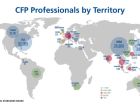This website uses cookies so that we can provide you with the best user experience possible. Cookie information is stored in your browser and performs functions such as recognising you when you return to our website and helping our team to understand which sections of the website you find most interesting and useful.

Financial empowerment is the ultimate form of self-care. Make yourself a priority and start building the life you deserve.
On International Women’s Day we remind the women of Ireland that financial independence is a form of empowerment. By being financially secure, women can create more opportunities for themselves and have the freedom to make choices that align with their values and goals.
For most, financial independence requires planning, discipline and determination to stay on track. Women in Ireland face unique challenges when it comes to managing their finances. While some of these challenges may be similar to those faced by women in other countries, the specific context of Ireland – including factors such as the gender pay gap and the high cost of living – means that women need to be especially mindful of their financial health.
In this article we will explore some of the reasons why financial planning is so important for women in Ireland, and offer some tips on how to create a successful financial plan.
- The gender pay gap
The gender pay gap in Ireland is significant, with women earning on average 14.4% less than men. This means that women have less money available to save and invest, and might find it harder to achieve their financial goals. Furthermore, the gender pay gap can have a compounding effect over time, as women who earn less are also likely to receive lower pensions in retirement.
To overcome this challenge, women need to be proactive about negotiating their salaries, seeking out promotions and career advancement opportunities, and making sure that they are being paid fairly. In addition, women should take steps to maximise their earning potential by investing in their education and acquiring new skills.
- The high cost of living
The cost of living in Ireland is high, with housing, childcare, and healthcare expenses among the most significant expenses for many people. This can be especially challenging for women, who may have additional expenses relate to caring for children or elderly relatives.
To manage these expenses, women need to create a budget that takes in to account all of their expenses, including any irregular or unexpected expenses that may arise, as well as the funds required to meet their own financial goals and objectives.
- Retirement planning
Retirement planning is an important aspect of financial planning for women in Ireland. Women tend to live longer than men, and as a result, they need to have more money saved for retirement to ensure that they are able to live comfortably in their later years.
To plan for retirement, women should start by setting specific goals for the amount of money they want to have saved, and by creating a savings plan that takes in to account their current income and expenses. In addition, women should explore different retirement savings options such as pensions, where tax relief is available on contributions. Where an employer contributes to a pension, this can significantly boost retirement savings.
- Estate planning
Estate planning is another important aspect of financial planning for women in Ireland. Women need to ensure that their assets are distributed according to their wishes after they pass away, and that their loved ones are protected in the event of death. This is particularly important where children or relationship breakdown is involved.
To create an estate plan, women should start by creating a will that outlines how they want their assets to be distributed. They should also consider setting up a trust to protect their assets, and creating powers of attorney that designate someone to make financial and medical decisions on their behalf should they become incapacitated. Where charitable legacies are included, consideration should be given to maximise their tax efficiency.
- Protecting against unexpected events
Women in Ireland also need to be prepared for unexpected events, such as illness, injury, or job loss. This means having adequate insurance coverage, including health insurance, disability insurance and life insurance.
Women should also have an emergency fund that can cover at least three to six months of living expenses, in case they experience a sudden loss of income or unexpected expense.
‘It’s simple, but not easy’.
Financial wellbeing is no different to maintaining good diet and health – we know what we should do but sometimes it’s hard to stay on track – it’s simple, but not easy! Working with a professional financial planner will help you set your goals and objectives, but equally as important, hold you accountable to achieving them. This coaching and accountability can significantly improve outcomes.
Tips for creating a successful financial plan.
- Understand your current financial situation: Start by taking stock of your current income, expenses and debts. This will help you create a baseline for your financial plan and identify areas where you can make improvements.
- Set clear financial goals: Define your financial goals, such as saving for retirement, paying off debt, or buying a home.
- Create a budget: Use your current financial situation and goals to create a budget that includes all your expenses and income. This will help you stay on track and make adjustments as needed.
- Take advantage of retirement savings options: Explore pensions and the tax relief available to find the best fit for your needs.
- Invest wisely: If you choose to invest, make sure you understand the risks and potential rewards.
- Finally, your best long-term investment will be to engage the services of a professional financial planner to guide you through this initial process and will help you review (to ensure you are on track to meet your goals) and adjust (to reflect changes in income or expenses) regularly.
Financial planning is crucial for women in Ireland to overcome the challenges they face, including the gender pay gap and high cost of living. By setting clear goals, creating a financial plan, and investing wisely, women can take control of their financial future and achieve financial freedom.
Happy International Women’s Day!



